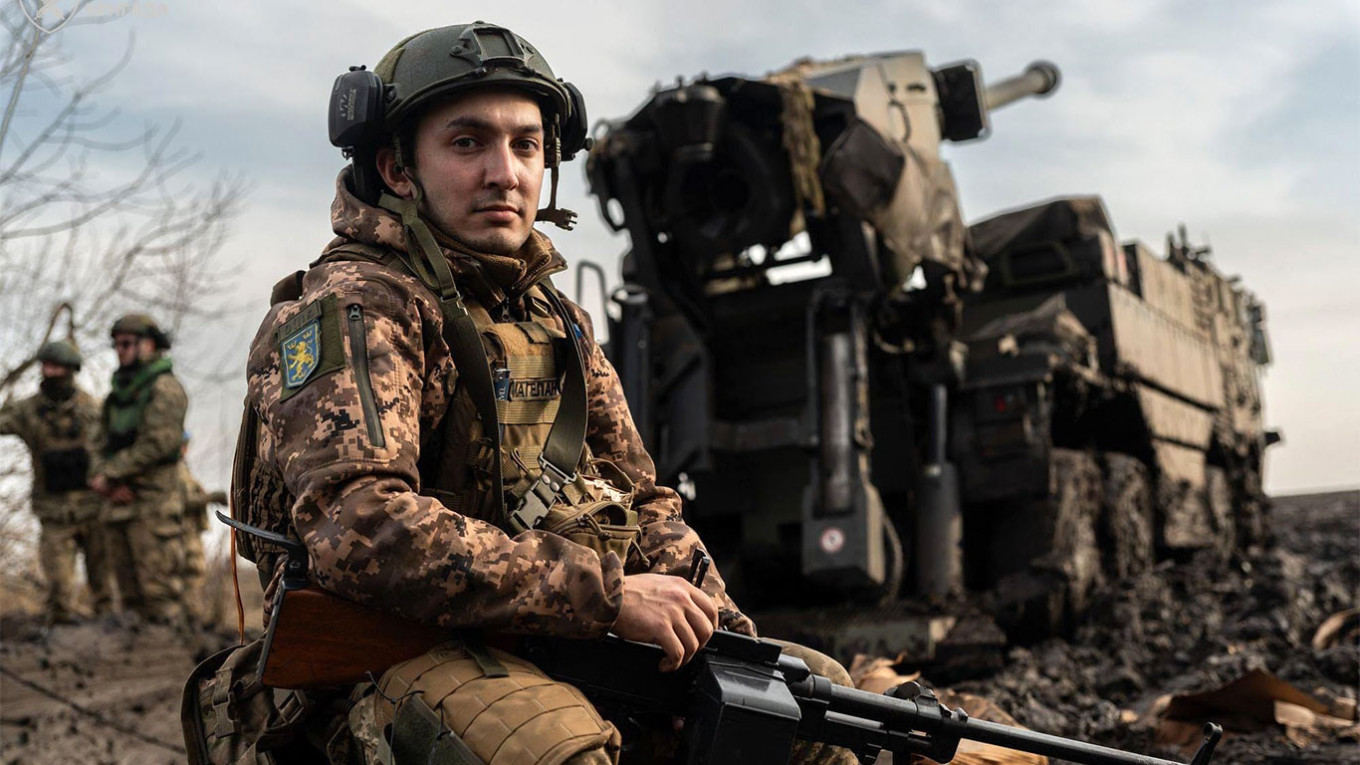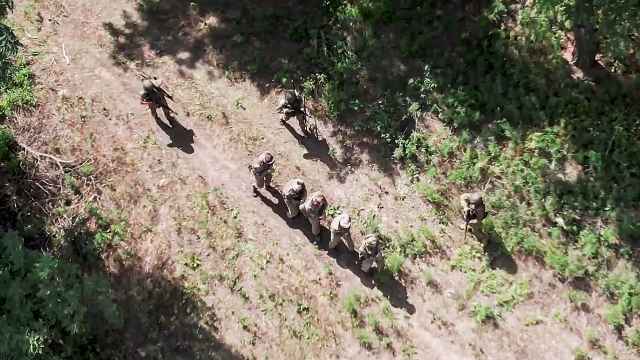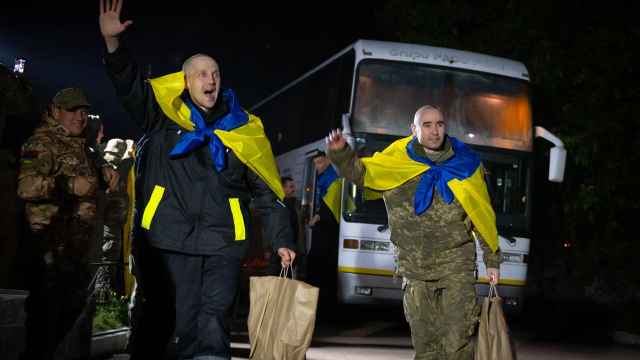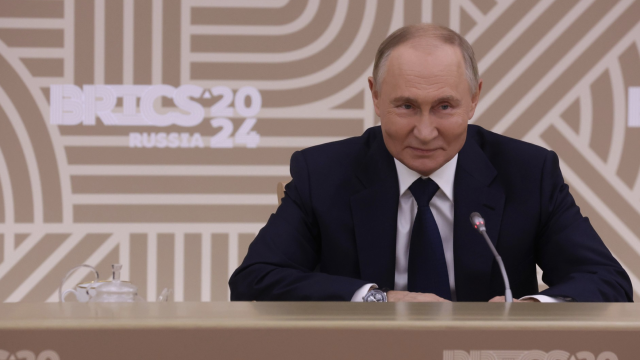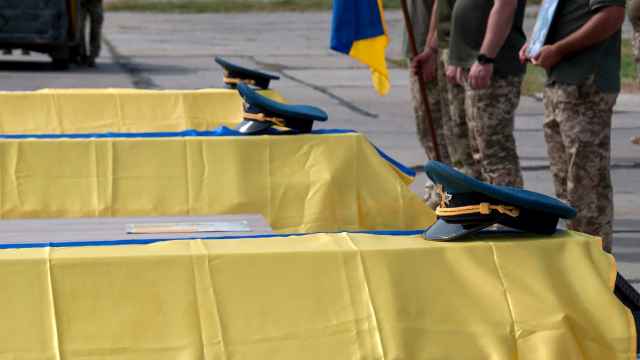This February marks 10 years since Russia attacked Ukraine, and two years after the full-scale invasion of the country. The last decade has starkly illustrated the futility of appeasing an outdated empire, allowing it to gather strength.
However, the West seems to lack the survival instinct necessary to move beyond endless discussions and find the means to counter the threat at hand. This makes Ukraine more resilient, more frustrated, and more daring.
Not long after the full-scale invasion, Kyiv launched an advertising campaign urging supporters to “be brave like Ukraine.” But where has that bravery been among Ukraine’s Western allies as they pursued an inefficient strategy, terrified that any move could be seen by Moscow as a dangerous escalation? Though the support the West has given is called unprecedented, it is far from enough when the initial bar — allowing Russia to overpower and occupy the entirety of Ukraine — was extremely low.
Instead of restoring Ukraine to its internationally recognized borders, the victory definition has shifted to making sure the country remains “independent and strong.” But this definition provides no detailed glimpse at what Ukraine will actually look like when the war is over. How many Ukrainians — soldiers and civilians — must die to inspire the West to stop holding back their defense of democracy?
After months of struggle, the Senate finally passed the $95.3 billion aid package, which was immediately criticized by House Speaker Mike Johnson, putting its future in question. Meanwhile, the alternative bill offered by the House cuts the scope of the aid.
Amid the Russian advance in Avdiivka, President Zelensky openly said at the Munich Security Conference that Ukraine was counting on Congress to pass the “vital” aid bill to move forward. Vice President Harris reiterated that the United States’ position is to “ensure that Ukraine receives what it needs." But has it ever actually fulfilled this ambition?
The 2023 counteroffensive was meticulously planned following NATO guidelines. Yet, its execution suffered from a lack of essential resources. In 2024, it is evident that advancing across a broad front without air superiority is unfeasible.
While Ukraine may potentially receive 60 F-16s, their usefulness will be limited because only a small number of pilots are being trained to fly them. Delays in the delivery of ATACMS missile systems, coupled with their insufficient quantity, further compound the issue. Meanwhile, Russia has capitalized on this delay to construct the Surovikin line, lay extensive minefields, upgrade their S-400 air defense systems, regroup, and even make advances.
Political analyst and veteran Yevhen Dyky pointed out that Ukraine is currently left with a “severe deficit” of weapons with just 2,000 shells allocated daily for a front line spanning 1,500 kilometers.
After two years of valiant struggle, Ukraine finds itself trapped in a vicious cycle: insufficient weaponry leads to limited victories on the frontline, which in turn diminishes the flow of aid.
The belief that a total Ukrainian victory is impossible is gaining traction. U.S. Senator Ron Johnson, one of a dozen Republicans opposing the aid package, says more aid won’t help Ukraine win the war against Russia. Inspired by Putin’s recent interview with Tucker Carlson, he believes in a negotiated settlement between Russia and Ukraine. However, this strategy has been shown not to work, as Russia has repeatedly violated similar agreements.
The head of the Norwegian intelligence service, Vice Admiral Nils Andreas Stensens, repeated the obvious – Ukrainians will need "substantial" military assistance from Western countries to have any hope of changing the situation.
Despite sanctions, Russia has been able to increase defense spending. With military support from Iran, Belarus and North Korea, it will have enough weapons and munitions to continue the war. Stensens added that the potential number of people Russia could mobilize is three times bigger than that of Ukraine, highlighting the imbalance between the two sides’ manpower.
These dire circumstances leave Ukrainian leadership with no choice but to take unpopular measures. The first of which was replacing Valery Zaluzhny with Oleksandr Syrsky as Commander in Chief of Ukraine’s armed forces. Seventy-two percent of Ukrainians do not support this decision.
One of the many reasons lies in the disparity between how Zelensky and Zaluzhny saw the trajectory of the war. Zaluzhny’s interview with The Economist, highlighting a stalemate, was meant as a plea for allies to deliver advanced weaponry. However, it was misconstrued as a pretext to challenge aid to Ukraine and undermine Zelensky's objective of reclaiming all lost Ukrainian territories, deeming it unattainable.
General Syrsky, who has effectively overseen operations in the Kyiv and Kharkiv regions, said unequivocally that Ukraine’s ultimate objection is the liberation of its entire territory. He is betting on an "artificial advantage" of finding a loophole in the enemy’s defense at the right moment.
But the window of opportunity for these battlefield miracles has closed. Russia is showing that it has learned its lessons after its initial assault failed to achieve its objectives. Meanwhile, the West continues doing too little to make a meaningful difference.
The scope of staff changes initiated by Zelensky goes far beyond the Commander in Chief. The President has appointed new leaders for the General Staff, Ground Forces, Joint Forces, Airborne Assault Forces and Territorial Defense Forces. Additionally, he has initiated changes in the central government, regional administrations and law enforcement agencies. Assessing the effects of this overhaul would be premature at this stage.
On top of that, in February, the Ukrainian parliament approved a bill that would allow Kyiv to mobilize more soldiers and implement harsher punishments for draft dodging. Certain provisions sparked a wave of criticism, even as Ukraine faces the urgent need to enlist up to half a million more individuals.
Without aid, Ukrainians may need to adopt a spartan lifestyle due to a 65% budget deficit. The country’s overall budget is 13% lower than last year. There seems to be no room left to trim social spending. Lack of financial aid may cause devaluation of national currency, rising poverty, and further migration.
Speaking in Kyiv at the beginning of this year, British Prime Minister Rishi Sunak noted that the war might be long and drew parallels with the Second World War. In his opinion, we are in a situation similar to the one in 1942: the war was at its halfway point, the defense industry was bucking, and Europe’s population was growing weary. But is the West ready to open the second front?
German Chancellor Olaf Scholz recognized that the long-term consequences and the price of the inability to confront Russia would overshadow the current costs. But he also underlined that the West still does not seek a confrontation with Moscow. Direct NATO involvement is extremely undesirable, rendering the prospects of Ukraine’s future membership unclear.
The fate of the war lies in the West’s hands. Their track record over the past year, never giving Ukraine what it needs to decisively remove the Russian threat, begs the question of what the West will do when there are no Ukrainians left capable of continuing the fight.
Those in the West suffering from war fatigue should remember that this is their fight too. Yes, their leaders may increase military spending which could otherwise be spent on social programs. But there will be no room at all for a welfare state, or any independent European state, under Russian occupation.
A Message from The Moscow Times:
Dear readers,
We are facing unprecedented challenges. Russia's Prosecutor General's Office has designated The Moscow Times as an "undesirable" organization, criminalizing our work and putting our staff at risk of prosecution. This follows our earlier unjust labeling as a "foreign agent."
These actions are direct attempts to silence independent journalism in Russia. The authorities claim our work "discredits the decisions of the Russian leadership." We see things differently: we strive to provide accurate, unbiased reporting on Russia.
We, the journalists of The Moscow Times, refuse to be silenced. But to continue our work, we need your help.
Your support, no matter how small, makes a world of difference. If you can, please support us monthly starting from just $2. It's quick to set up, and every contribution makes a significant impact.
By supporting The Moscow Times, you're defending open, independent journalism in the face of repression. Thank you for standing with us.
Remind me later.



